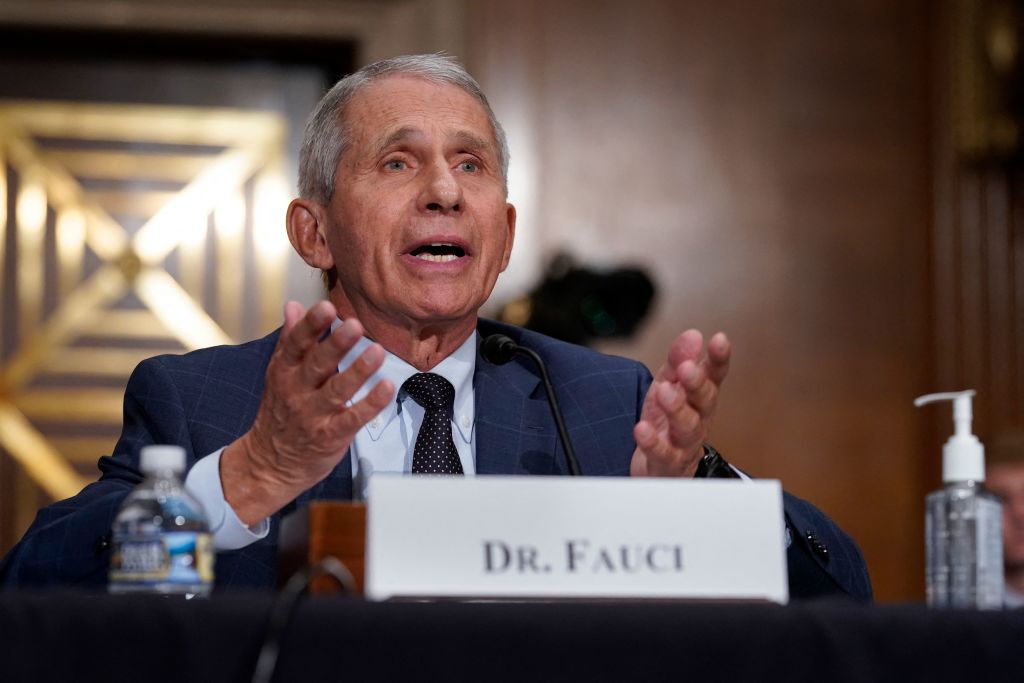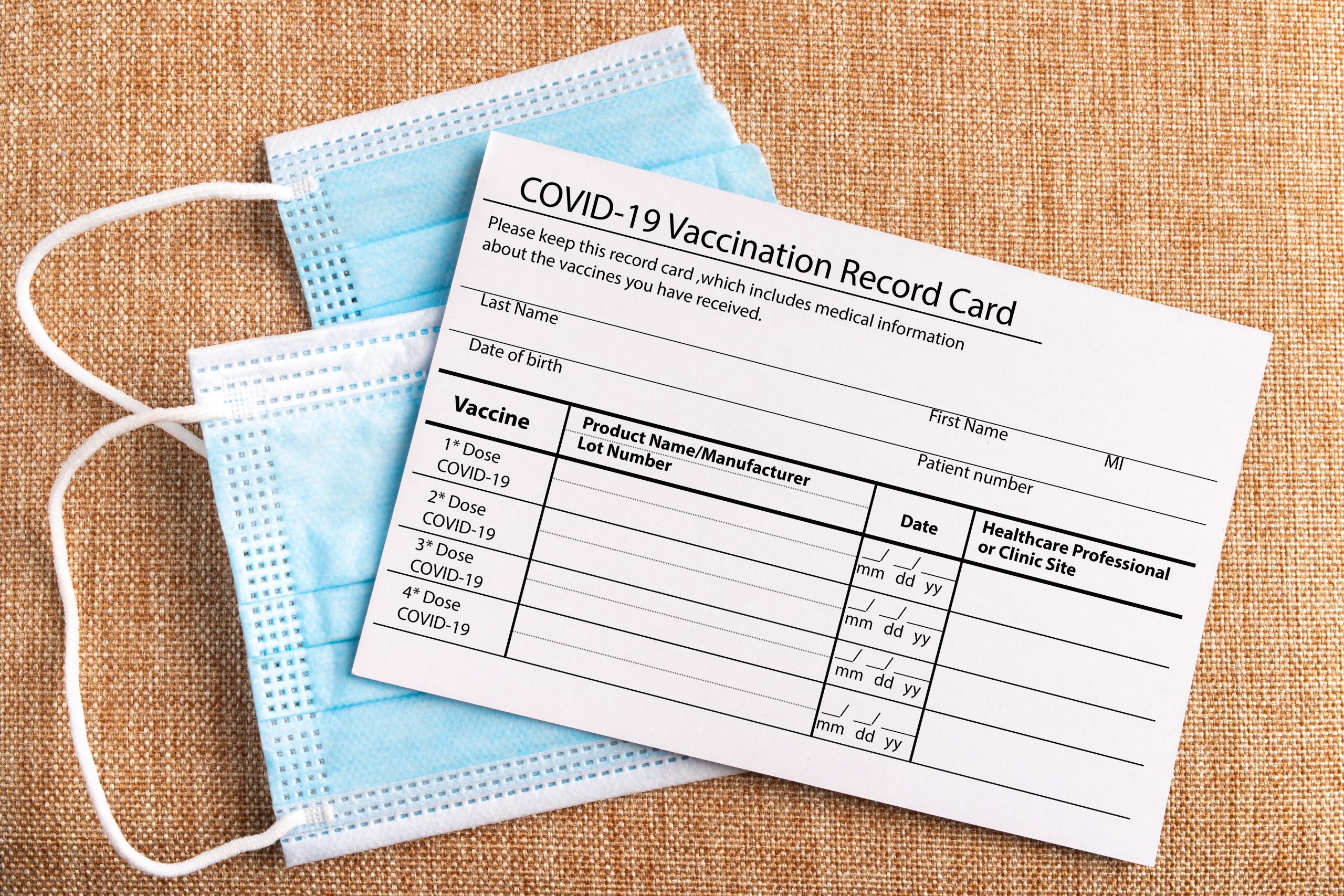An Inmate Survival Guide
How the Regime Wrecked the Vaccine Rollout

An end to informed consent
In 2020, a consensus of public health experts said that “herd immunity”—the general resistance of a population to viral contagion—would be achieved when between 60 percent and 70 percent of the population have been infected. Since there was no vaccine then, the general understanding was that natural immunity through disease survival would be a significant factor.
That changed in 2021, when all public health policy and all public discourse became focused entirely on the vaccine. Public health officials had managed public expectations around the need to achieve herd immunity at the very least through a combination of natural immunity and vaccinated immunity, and then reversed course, denying that natural immunity could be counted toward achieving general resistance across the population.
Mixed signals? Of course. Did the public notice. Of course. Did this undermine trust in the messenger? Absolutely.
The Johnson and Johnson Vaccine Pause
On April 13, 2021, the Food and Drug Administration (FDA) decided to pause the use of the Johnson & Johnson (J&J) single-dose coronavirus vaccine. The reason for the hiatus was to review reports that some people developed blood clots after receiving the shot. By then, 6.8 million people had received the J&J vaccine; in a few cases, women between the age of 18 and 59 had developed blood clots 6 to 15 days after vaccination. Then, on April 23, 2021, the FDA recommended resuming the use of the J&J vaccine.
By April 13th, 75 million Americans, or roughly 23 percent of all Americans had been fully vaccinated with the J&J vaccine, the Pfizer vaccine, or the Moderna vaccine. While millions of people continued to get vaccinated after the J&J scare, momentum slowed as doubts about the shot’s safety and efficacy took hold.
In response to a flattened curve of new vaccinations, the administration adopted a propaganda campaign which has been clumsy, unpersuasive, and tended to sow deeper mistrust regarding the motivations of the administration and its public health officials.
Failed Message #1 – “If you don’t get the vaccine, you don’t care about others.”
You’ve heard this message. If it worked, it wouldn’t have kept morphing into something else. So why hasn’t it persuaded people to get vaccinated?
People who are unvaccinated know that they do care about others, but also know that they care about themselves. They know they can do both. To tell someone that they don’t care is a pandering way to try to throw a guilt trip on someone else.
A cynic might see a message like this as designed to create division between those who are vaccinated and those who are not, and then to use mob pressure tactics to shame people to get the vaccine. Unfortunately, the cynics have been proven right on this point.
Failed Message #2 – “His last words before he died was, ‘I should have gotten the vaccine.’”
If you’re in marketing or public relations, you know that selling regret is one of the most common and oldest strategies for convincing the masses. Any time you hear someone in an ad say, “I should have…,” that’s the persuasion strategy at work. So, it’s no surprise that vague or sometimes unsubstantiated stories of vaccine regret dominated the news for a while. You aren’t bombarded with those stories so much now because it’s no longer resonating with the unvaccinated.
Some might assume that the unvaccinated think it won’t happen to them. That might be true for some, but it’s not that simple.
People can see the difference between anecdotal stories and true patterns. They also know to read the stories and look for patterns around comorbidities or demographics. More often than not, the people dying of Covid, if they are younger, have comorbidities. Otherwise, most of those seriously affected tend to fit within the 65-plus demographic.
There has been enough information revealed about Covid by this point that many, if not most, of those not vaccinated know they don’t fit into either of these camps.
Failed Message #3 – “Get the vaccine, or else.”
The most current message is the threat of punishment, such as when President Biden, in his speech to the nation on September 9, 2021, weaponized the Occupational Safety and Health Administration (OSHA) to enforce a vaccine mandate for all employers with 100 or more workers.
Americans don’t like threats or mandates. The tactic will lead some to get vaccinated, at least in the short term, because of the threat of losing their jobs. Still, expect a large group to continue to resist vaccination messaging.
CNBC conducted a poll in early September and found that the decision not to get vaccinated is rooted in a mistrust in government and concern over adverse effects. The CNBC/Change Research poll surveyed 1,775 people between August 30 to September 2, 2021 on their perceptions of the vaccine and other issues. Twenty-nine percent of U.S. voters are still unvaccinated. Of that group, 83 percent indicated that they have no plans to get vaccinated.
Suppression of Information
Unvaccinated people on social media are aware of the organized suppression of information on Covid treatments in order to keep the focus on vaccination. This comes across as insecure and duplicitous. If the vaccine is that good, why be threatened by talk of treatments? This seems less about the common good and the public health, and more about getting people vaccinated even though it does not prevent infection.
If public health were the central concern, a comprehensive campaign to create awareness of all measures, treatments, and protocols for preventing and treating Covid would be embraced by the authorities. But that’s not happening. Instead, social media users are banned from mentioning the upside of many treatments on the basis of “misinformation,” and they are censored for sharing information that sheds a negative light on the vaccine.
The data supports claims that people who are vaccinated may reduce their risk of getting Covid, or at least reduce their risk of severe illness. The vaccine itself is not a total failure, but in terms of how vaccines are defined, it’s not a complete success story, either.
Independent writer and former New York Times reporter Alex Berenson got banned from Twitter for tweeting, “It doesn’t stop infection. Or transmission. Don’t think of it as a vaccine…Think of it – at best – as a therapeutic with a limited window of efficacy and terrible side effect profile that must be dosed IN ADVANCE OF ILLNESS.”
Over Columbus Day weekend, Southwest Airlines pilots staged an apparent sickout in response to the company’s vaccine mandate, which the pilots’ union termed illegal, especially in light of other unresolved labor matters. The mini-strike resulted in mass cancellations of Southwest flights, which the company blamed on weather and air control issues—which didn’t affect any other carriers. Media reports blandly repeated Southwest’s claims, suprressing the organized resistance to the vaccine mandate.
The public sees this. It sees all of it. And it makes people less confident in those touting the vaccine. As a result, it makes them less confident in the vaccine itself.
For decades, healthcare consumers have been trained to ask questions, consult with their doctors, weigh the risks of any treatment or procedure against its potential benefits before making a decision. Even if they don’t know the term, they do know the concept. It’s called “informed consent.”
But now, informed consent is one step from believing in wizards. The decision is now between you and your employer, or between you and the ticket-taker at the football stadium or rock concert, or between you and the greeter at your favorite restaurant.
None of this is a recipe for winning the confidence needed for anyone still not vaccinated to want to become vaccinated. The authorities need to reset their approach, and start by trusting the people, their basic freedoms, and the civil liberties that underwrite and legitimize our way of life. If you want to be trusted, you have to be willing to trust.
The American Mind presents a range of perspectives. Views are writers’ own and do not necessarily represent those of The Claremont Institute.
The American Mind is a publication of the Claremont Institute, a non-profit 501(c)(3) organization, dedicated to restoring the principles of the American Founding to their rightful, preeminent authority in our national life. Interested in supporting our work? Gifts to the Claremont Institute are tax-deductible.
The American Founding embodied whole truths based in natural rights.
Our useless ruling classes are making a hard decision way, way worse.



